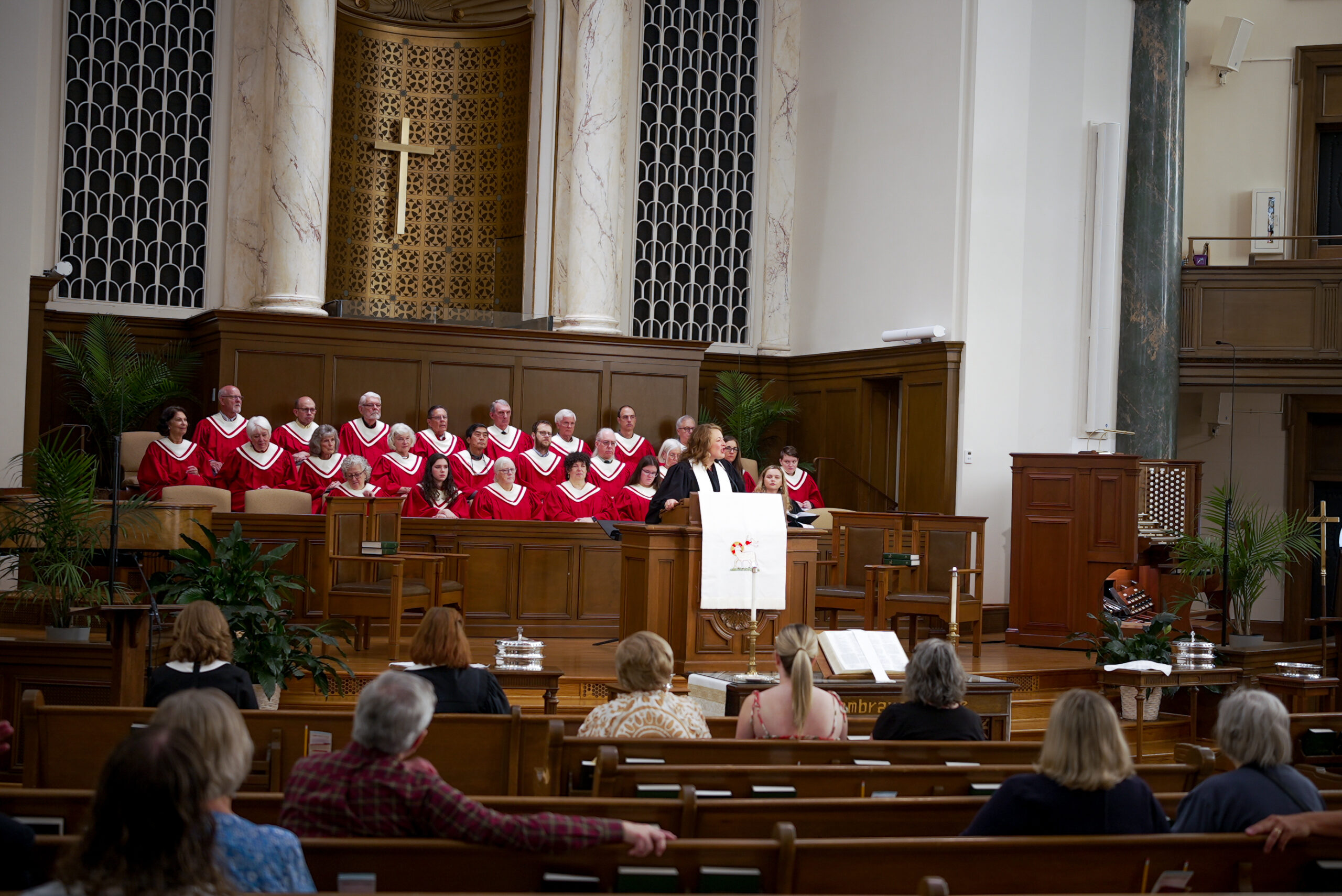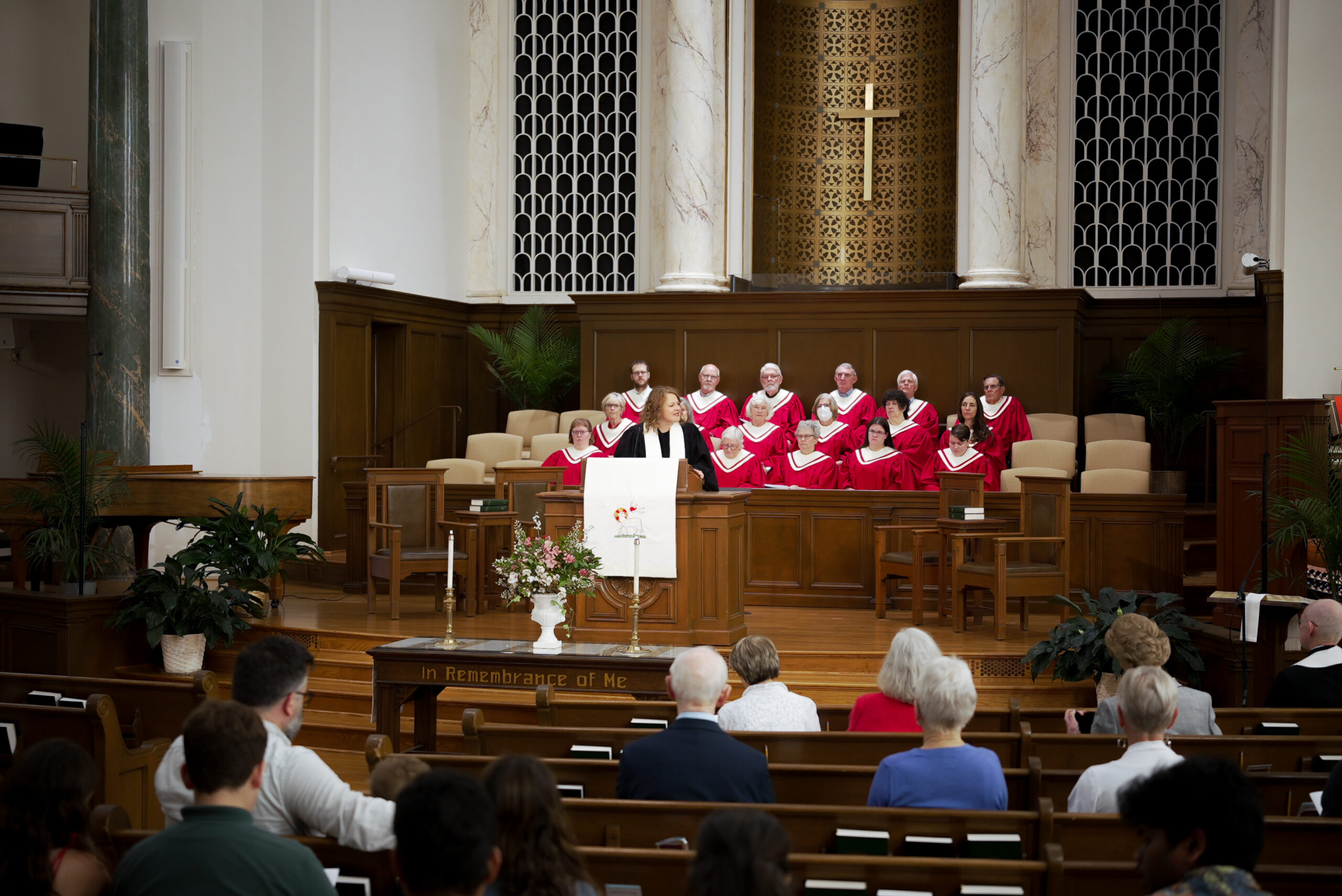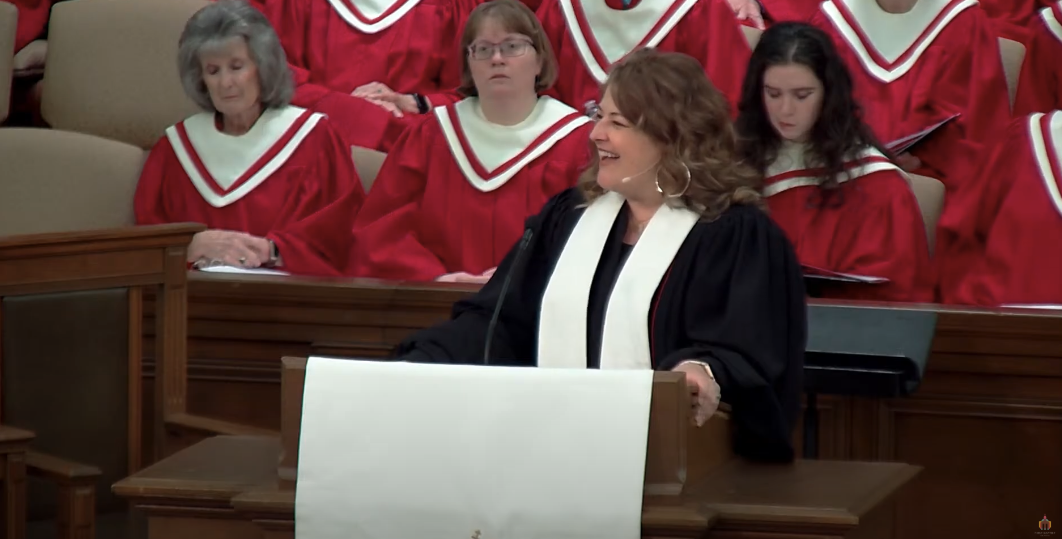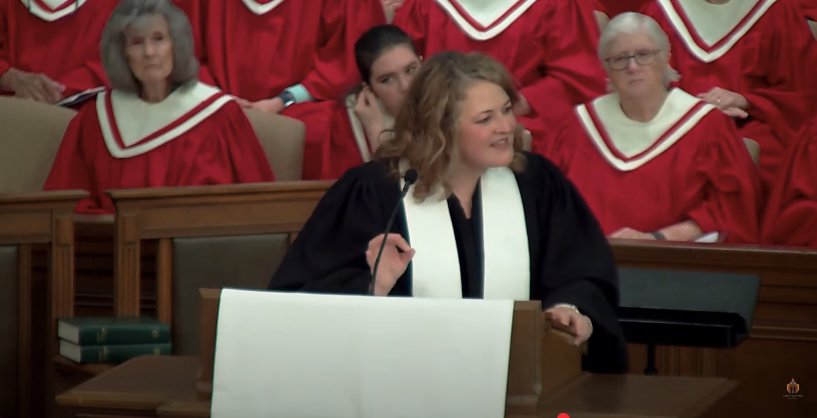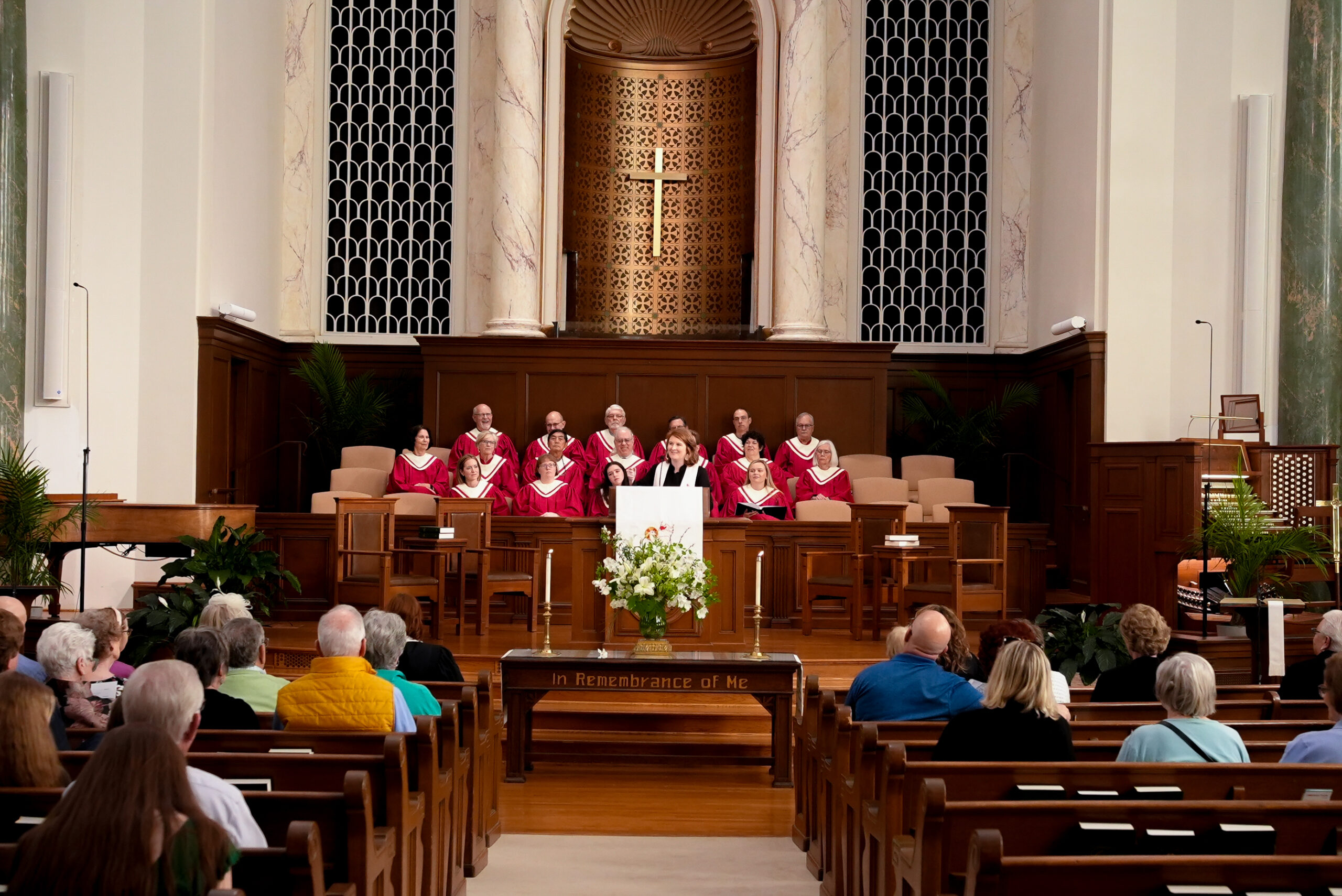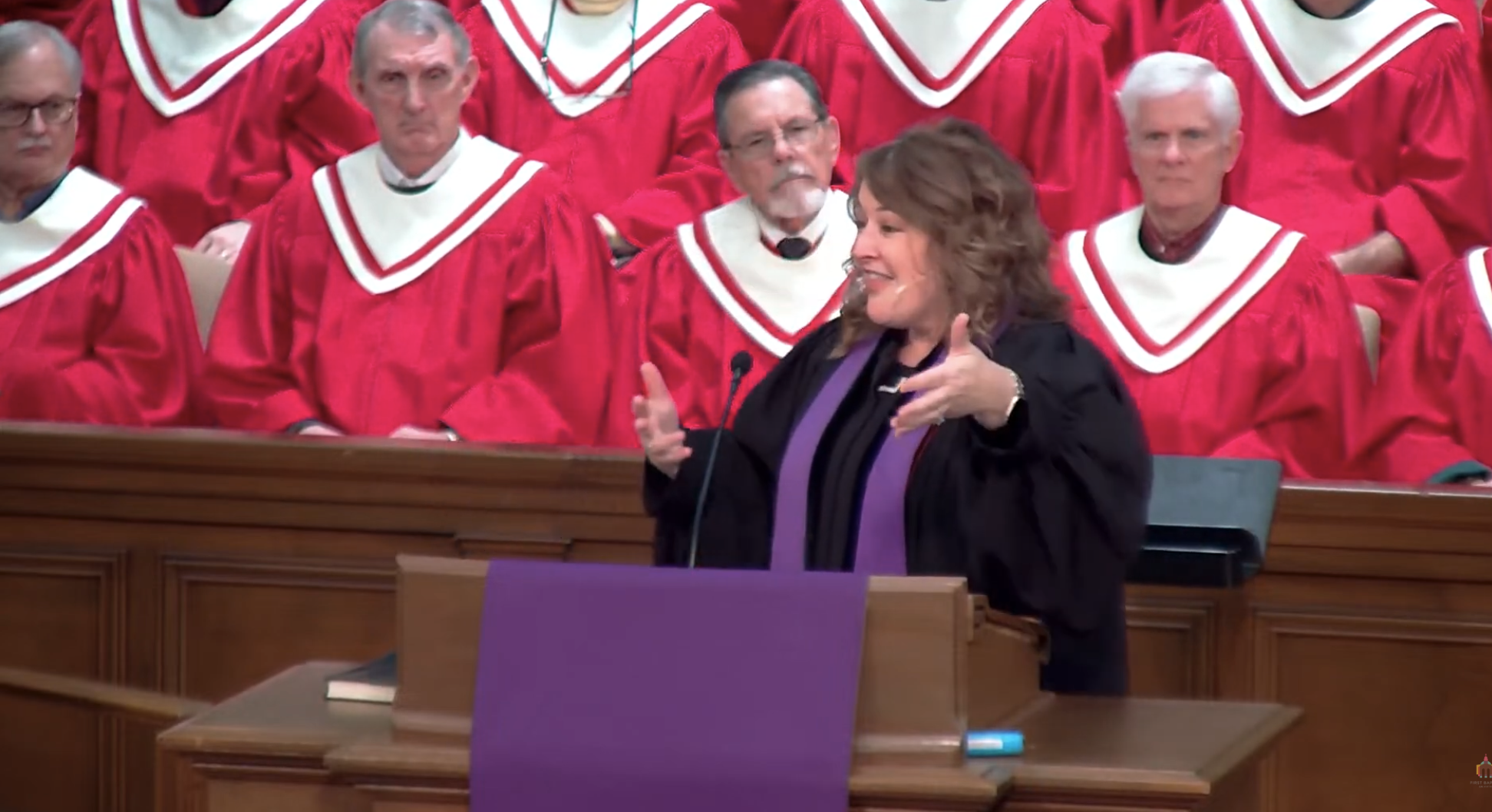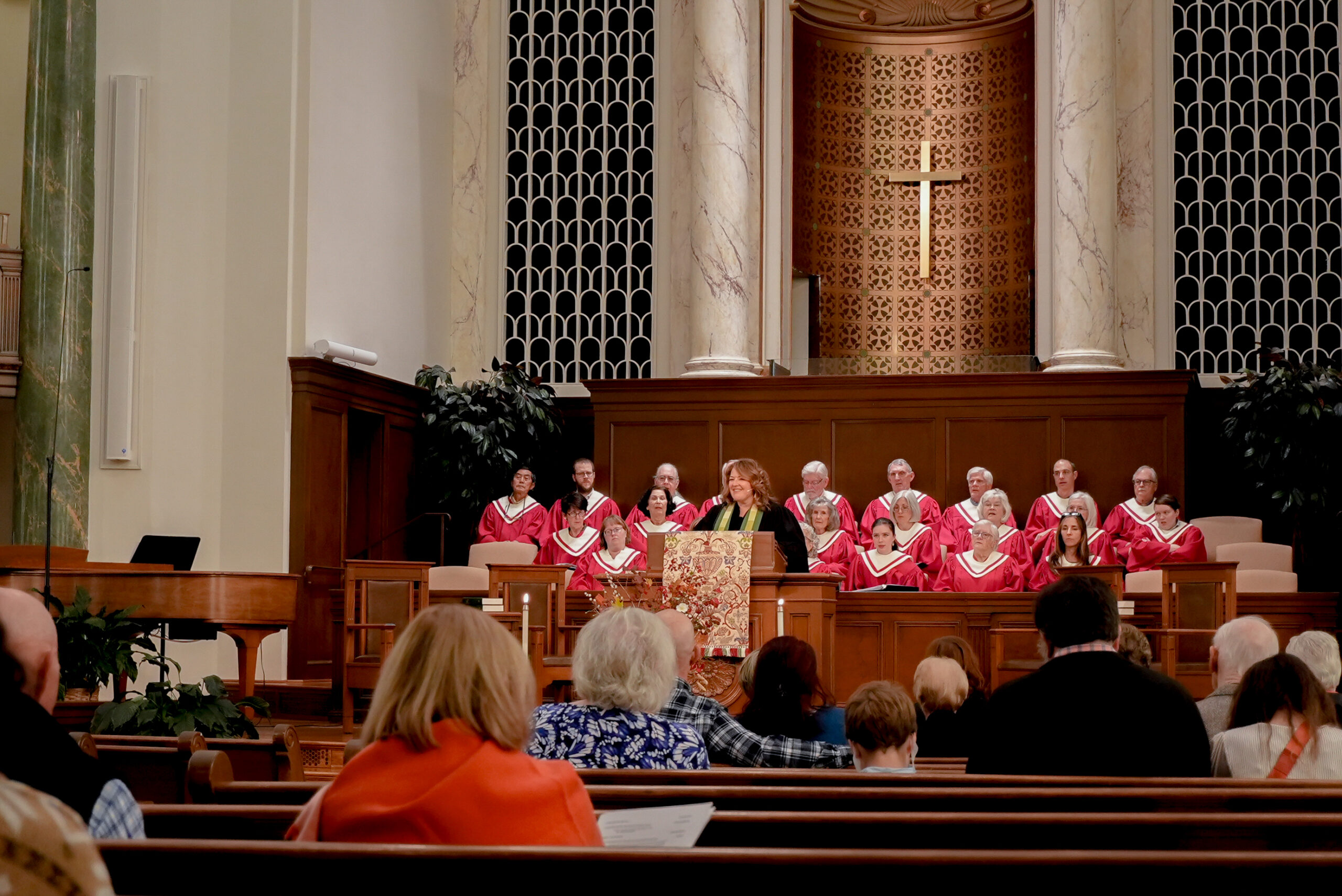I.How will I know? How will I know? How will I know that the worst thing isn’t the last thing? How will I know that beginnings are possible when all I see are endings? How will I know forgiveness, and mercy, and transformation, and hope above all else? How will I know that Jesus is alive?
Unlike Mary Magdalene, we don’t hear the risen Jesus call us by name in the garden. Unlike the disciples on the road to Emmaus, Jesus doesn’t walk on the roads of our lives beside us in lockstop, breaking the bread and opening the scriptures. Unlike Thomas, we can’t ask to press our fingers into his hands, our hands into his side. So with time and distance from those first resurrection days, what, then, does it take for us to know? Is simple recognition enough, or is there something deeper in this knowing, something that can only emerge through encounter, experience, endurance?
II.As the old saying goes, a disciple once asked his master, “what’s the difference between knowledge and enlightenment?” To which the master responds, “when you have knowledge, you use a torch to show the way. When you are enlightened, you become the torch.”1 For these questions we turn to Simon Peter, flawed and reckless and grieving and hopeful, his heart burning with love, to be our torch. And among all the post-Easter texts to consider with the question, “how will I know?,” there’s perhaps none better than the story told in the 21st chapter of John. John 21 is like a highlight reel of the gospels, and one of the great witnesses of knowing in all of scripture starts with a meal.2
But before we get there, we have to backtrack a bit to follow Simon Peter in his unknowing, and perhaps our unknowing too. You remember Peter. Peter who was the first to proclaim Jesus the Son of God before anyone else. Peter whose sick mother-in-law is healed by Jesus. Peter who, with abandon, flung himself out on the water to walk toward Jesus. Peter who offered to build three tents up on the mountain so as to preserve the glory of Jesus’ transfiguration and create space for them to stay there. Peter, Petra, the rock upon which Jesus will build his church. Peter, who in the most pivotal moment of his life, failed his precious Jesus by denying him three times right around a charcoal fire.
All of this memory and shame follows Peter to the Sea of Tiberias. Jesus was no longer with them, and Peter and his friends were back to fishing. It was familiar, of course: the boats, the nets, the sore arms, the isolation that seemed a comfort for his wounded, aching heart. He does as humans have done throughout all time and space when shattered by life, by retreating into what’s known, and by known, I mean recognized. Expected. Settled. Maybe in the folds of familiarity, this shame he’s been trying desperately to forget will just fade into the background of his life.
But it doesn’t. Not for Peter, not for any of us. Because where shame is, Jesus is too, mercy at the ready. They didn’t notice him on the shore while they fished. They had a job to do, and income to earn, and mouths to feed. It had been long enough. They had to get on with it. Back to Galilee and back to work. They cast out those nets and brought them back in, throwing them hard into the dark water with muscle memory that pulls them back before they were called to fish for people, back before the joy of his Way had captured their imagination, back before he called them to follow. All throughout the dark night, they labored with nothing to show for it. Theirs were empty nets, filled only with the detritus of forgotten items and lost things, an apt metaphor if ever there was one to describe the state of their souls. We know the empty nets, empty of meaning but full of those stuck stories that get caught in the crevices of our living, the webs of pride and control, the battered stuff of a life that isn’t what we’d planned.
They didn’t recognize him that day at daybreak, not even as he called out to them, “children, you have no fish, have you?” John doesn’t say they even recognized him at first when he directed them to cast their nets on the other side. They struggled to even haul in the lot of 153 without the net tearing, there were so many. But when the disciple Jesus loved realized who had been their guide, it was Peter who couldn’t wait a moment longer, Peter who covered himself to swim and meet the Lord, Peter who practically baptized himself on the way to meet Jesus again for the first time.
Dripping and breathless, Peter stepped out of the water to find Jesus grilling fish and bread over a charcoal fire. Over a charcoal fire. It stopped him cold, that scent. John says it was by a charcoal fire where Peter first denied being one of Jesus’s disciples when asked. So when he finds himself on the other side of grief and loss and shame, trying to forgive himself for his greatest lapse of loyalty, it was by another charcoal fire that Peter broke bread with our Lord and shared a filet of fish. I imagine he shook and shivered, wondering where to even begin, wondering if he could even look at Jesus, wondering what feeble words of apology he might find to take back the words of denial he had confessed. I imagine ash flew around a bit, and the smell caused a palpable moment of trauma for him. For it was around that fire that forgiveness and mission became the primary feast. Around that fire, the disciples didn’t have to wonder who their breakfast partner was, for they knew it was Jesus – something about the way he handled the bread and cut the fish. Around that fire, Simon Peter heard a new story and came back to life again.
That charcoal fire at night was the gruel and grub of denial. This charcoal fire at dawn is all warmth and sustenance and nourishment. The kind that cooks fish and bread, that puts the past in the kiln of memory. Jesus didn’t scold Peter for his betrayal, nor did he avoid the confrontation either. Jesus feeds him first, nourishing the one full on his own self-loathing and regret. Like a mother with her children, Jesus knew what they needed most. He already had some fish, but asks the disciples to bring some themselves. Jesus is always in the business of serving us, feeding us, nourishing us, and then asking us to do our part too. It’s a partnership of radical hospitality, us and Jesus.3 Surely the disciples were all remembering their last meal together, that last supper, but today Jesus says “come have breakfast.” It will become the first meal of their new life together.4
When the meal was done, when Peter was dry and fed, Jesus asks Peter, “do you love me more than these?” Do you love me more than your old knowing, more than your well-worn patterns and familiar wounds, more than your shame, more than all you used to cling to. “Do you love me more than these? Do you love me? Do you love me? Do you love me?”
Do you notice that Jesus doesn’t ask if Peter knows him or recognizes him? He asks Peter if he loves him. Each answer becomes a new story. Each answer, a new grace. Each answer, with all tenderness and safety needed for shame to give way to reconciliation. “Do you love me?,” Jesus asks. “Then feed my sheep. Tend my lambs.”
III.“Lord, you know everything,” Peter responds. “You know that I love you.” Ted Loder calls this “the haunt of grace.” “That haunt,” he says, “is a key to resurrection, to eternal life beginning: the ecstasy of the familiar, being simple, staying simple and staying watchful, lest we miss the resurrections of the daily.”5 Because even when we don’t know, Jesus does. He knows how prone we are to wander. He knows how we fail. He knows that we loathe our choices but struggle to make better ones. He knows that in order to go feed and tend, we need to be fed and tended first. He knows that in our deepest hurts, love warms up a way forward.
Because to Jesus, love does. Love makes a meal. Love tends and feeds. Love invites to breakfast and then sends to go and feed sheep. Love looks like dignity restored, relationships reconciled, new life on the horizon once again.
So how do we know resurrection? Well, we go share a meal! We look for Jesus breaking bread after the walk to Emmaus, eating fish with the disciples in the Gospel of Luke, cooking breakfast on the beach with his fishermen-turned-disciples. We look for Jesus in a raucous pot luck, or a lonely TV dinner, or in the tight-lipped anger of two fighting spouses over rapidly-cooling plates. We look for Jesus with our torch of knowledge, and somewhere along the way, we realize that Jesus has been with us all along, enlivening and enlightening us to become salt and light for the sake of Love.
IV.This story of Peter is one of the great stories of our faith, one that can just stand alone. But let me tell you another story today, this one from Heidi Neumark, a Lutheran pastor of a tiny church in the South Bronx, in perhaps – as one writer identifies – the poorest of all poor neighborhoods in America. It was a church filled with all kinds of people: undocumented workers, former drug addicts, women who’d left prostitution, the recently homeless. “And those were just the church officers,” she joked with a friend.
One Easter season, the congregation was trying to decide how best to show their joy in the resurrection to the neighborhood. So they decided that on Palm Sunday, they would reenact the Easter story right there on the streets of the South Bronx – in between the run-down storefronts and dilapidated apartment buildings.
Plans came together. Someone knew a farmer that loaned them a donkey. A member played the part of Jesus. They started with Palm Sunday, circling the block with their parade, branches waving and shouts of Hosanna and all. Some neighbors even came out of their buildings to watch – maybe with curiosity, maybe with disdain – and began to follow.
Well the plan was to go around the block and back into the church where they would reenact the rest of the story of Jesus’ final week, death, and resurrection, but as they came around, they encountered a protest going on in the street. Neighbors organizing against local government got mixed with the rag tag bunch of churchgoers, and suddenly everyone ended up in the church. The confusion was even such that the police were called, which added quite the angle to their passion play.
But there in the church, those who gathered heard the old story. They saw an innocent man tried on trumped up charges. “Yeah, that’s the way it is,” someone said. He was put to death. “Yeah, that’s the way it is,” said another. Then he was taken to the tomb. And then on the third day three women went out to the tomb. The script called for them to come back and say to the congregation, “He is alive. I know he is alive, because he is alive in me.” Each would say it, and then a hymn would be sung and the service over.
So they said it. An undocumented worker, “He is alive…” A recovering addict, “I know he is alive!” A former prostitute, “He is alive in me.” But as the third woman spoke, someone else from that neighborhood protest stood up and said, “And I know he’s alive, because he’s alive in me.” Another protester stood up, “He’s alive in me.” Then a police officer charged with accompanying the protest, “I know he is alive. He’s alive in me.” And then a mother from the neighborhood, “He is alive, I know he’s alive. He’s alive in me.” Another. And another. I know he is alive, because he’s alive in me! The stories they were stuck in, the knowledge so limited to recognition, all gave way to stories of new life, writing themselves before their very eyes. And all were changed.6
V.That breakfast on the beach changed Peter. The faith that Jesus had in him restored something vital within Peter that allowed him to go on and preach the good news. Transformation so fully found Peter, that some two thousand years later, this world is still electing new leaders to step into his footsteps, to light the way, to feed the sheep and tend the lambs.
And that transformation in not just for Peter, or a crowd gathered at a South Bronx church. That transformation is waiting for you – just as Jesus is – by the charcoal fire of your shame, with a warm meal and the haunt of grace, ready to feed us into our enlightenment and send us forth to feed my sheep and tend my lambs.
How will I know that he’s alive? “I know he’s alive. Because he’s alive in me.” Thanks be to God! Amen.


